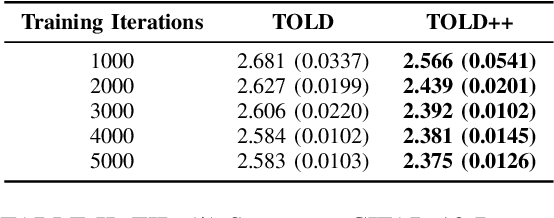Monica Bugallo
Critically Damped Third-Order Langevin Dynamics
Sep 12, 2024



Abstract:While systems analysis has been studied for decades in the context of control theory, it has only been recently used to improve the convergence of Denoising Diffusion Probabilistic Models. This work describes a novel improvement to Third- Order Langevin Dynamics (TOLD), a recent diffusion method that performs better than its predecessors. This improvement, abbreviated TOLD++, is carried out by critically damping the TOLD forward transition matrix similarly to Dockhorn's Critically-Damped Langevin Dynamics (CLD). Specifically, it exploits eigen-analysis of the forward transition matrix to derive the optimal set of dynamics under the original TOLD scheme. TOLD++ is theoretically guaranteed to converge faster than TOLD, and its faster convergence is verified on the Swiss Roll toy dataset and CIFAR-10 dataset according to the FID metric.
Tree-Structured Recurrent Switching Linear Dynamical Systems for Multi-Scale Modeling
Dec 05, 2018



Abstract:Many real-world systems studied are governed by complex, nonlinear dynamics. By modeling these dynamics, we can gain insight into how these systems work, make predictions about how they will behave, and develop strategies for controlling them. While there are many methods for modeling nonlinear dynamical systems, existing techniques face a trade off between offering interpretable descriptions and making accurate predictions. Here, we develop a class of models that aims to achieve both simultaneously, smoothly interpolating between simple descriptions and more complex, yet also more accurate models. Our probabilistic model achieves this multi-scale property through a hierarchy of locally linear dynamics that jointly approximate global nonlinear dynamics. We call it the tree-structured recurrent switching linear dynamical system. To fit this model, we present a fully-Bayesian sampling procedure using Polya-Gamma data augmentation to allow for fast and conjugate Gibbs sampling. Through a variety of synthetic and real examples, we show how these models outperform existing methods in both interpretability and predictive capability.
 Add to Chrome
Add to Chrome Add to Firefox
Add to Firefox Add to Edge
Add to Edge